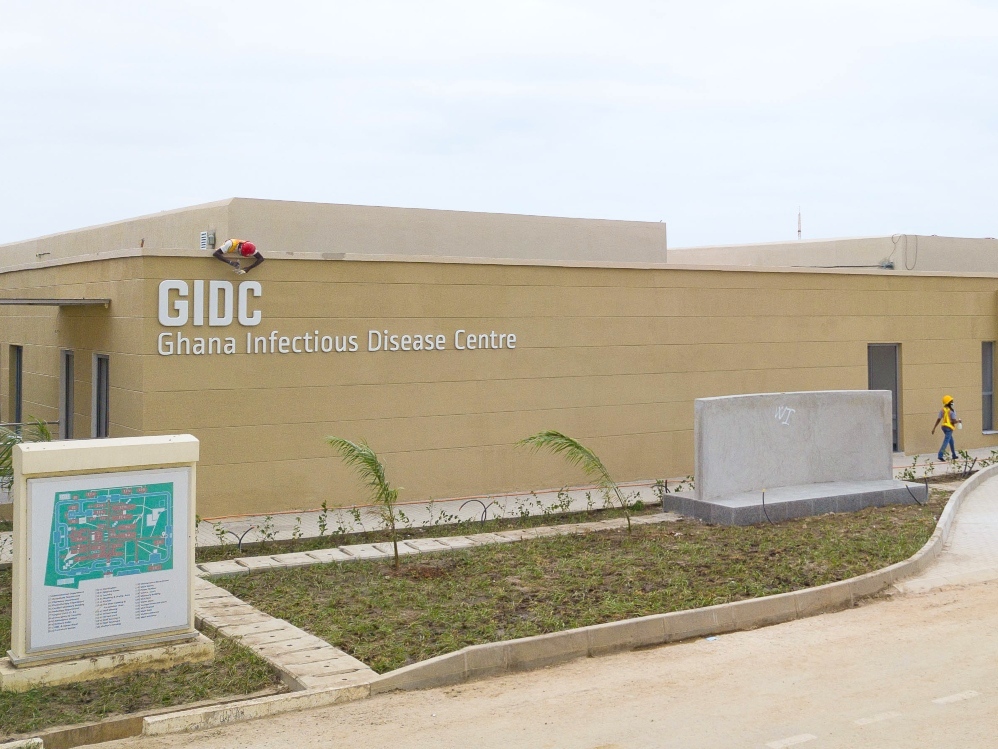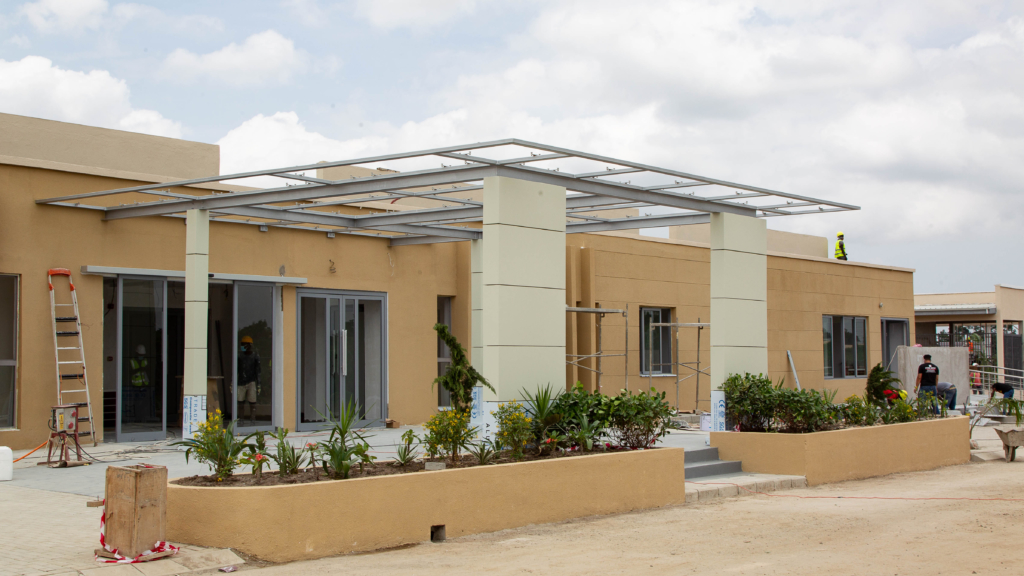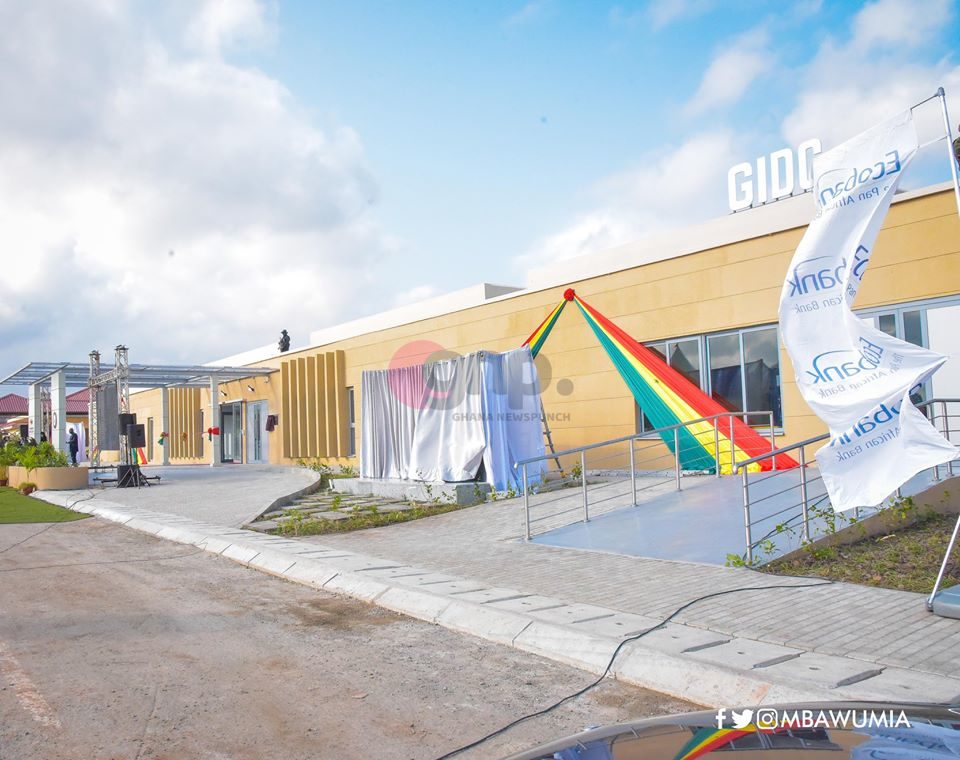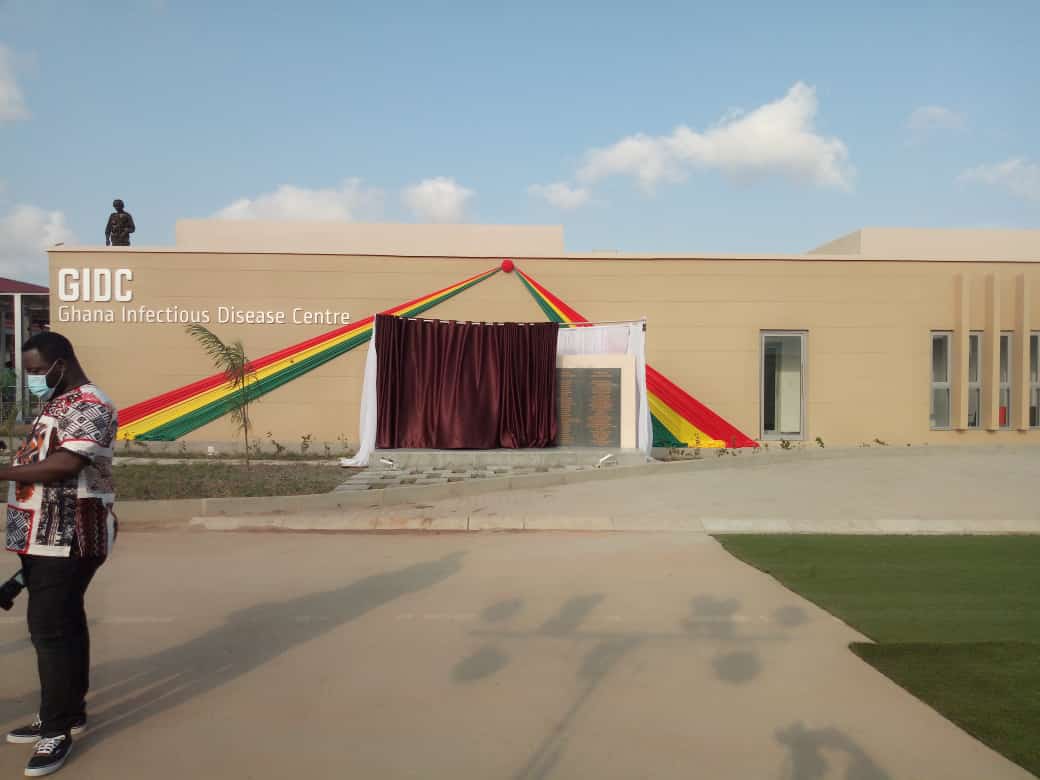The Ghana COVID-19 Private Sector Fund (GCPSF) says a sum of GH₵254,203 of the National COVID-19 Trust Fund (NCTF) money questioned in the Auditor General’s report was added to other funds to buy laboratory equipment worth GH₵1.33 million for the Ghana Infectious Disease Centre (GIDC).
The GCPSF explained that the amount resulted from savings made due to prudent and value for money procurement during the construction of the GIDC.
The GCPSF said it renegotiated some contracts following the failure of some contractors to supply the required items on time or meet quality standards
The renegotiations provided opportunities to extract value and achieve savings of GH₵254,203 for the project.
This was reported in GCPSF’s 2020 accounts prepared by KPMG and same shared with the NCTF.
According to the GCPSF, it duly notified the NCTF in 2021 to use the money saved under the Protect and Resource the Frontline (PARF) project through which laboratory equipment worth GH₵1.33 million have been ordered.

Though the process to procure the equipment started in 2020, everything was completed and the contract awarded in May this year.
Responding to the Auditor General’s report requesting for a refund of the money, Managing Trustee of GCPSF, Senyo Hosi, said laboratory equipment worth GH₵1.33 million have been ordered.
According to him, a consignment of the equipment worth GH₵557,610 have been cleared and handed over to the GIDC while the resting are undergoing clearing at the port.
This, he said, was done in conjunction with officials from the Noguchi Medical Research Institute, in July 2020, to upgrade the GIDC laboratory to a level-3 status, comparable to the laboratory at Noguchi.
This project he said, was completed in May 2022 with the award of the relevant contracts worth GH₵1.33 million.
The NCTF PARF donation saving of GH₵254,203 was partly applied to fund the acquisition of the laboratory equipment, the statement said.
However, on July 15, 2022, the GCPSF received a letter from the NCTF requesting a refund of the saving, citing the recommendation of the Auditor-General’s report for the GCPSF to account for the saving or refund it.
Prior to this, “we had never been requested to refund the savings,” the statement said, contradicting paragraph 32 of the Auditor-General’s report.

The managers of the GCPSF however opted to complete the laboratory upgrade project before completing the accounting process for the saving.
In the estimation of the GCPSF, “the application of the funds in the procurement of this critical equipment for the public good is constructive.”
However, Mr Hosi expressed the willingness of the GCPSF to refund the GH₵254,203 if the NCTF so insists despite the detailed information provided
The NCTF was the largest donor to the Protect and Resource the Frontline (PARF) project, donating GH₵10.257 million for the supply of medical equipment and PPE to major COVID-19 centres and frontliners.
The NTCF was also a major donor providing GH₵6.8 million to the delivery of 100-Bed Ghana’s First Infectious Disease Centre.
Project cost $7.5m
The ultra-modern facility worth $7.5 million was funded by the Ghana COVID-19 Private Sector Fund.
536 Patriotic and industrious Ghanaians made donations
The funds were donated by 536 patriotic and industrious Ghanaians to back the project to support government’s efforts in combating the COVID-19 pandemic.
$5.5m cash, $2m free services
This is made up of $5.5 million in cash including post project decommissioning activities, as well as $2 million in kind (consultancy services, construction supervision and tax waivers).

Between 66 pesewas and GH¢10m donated
Corporate entities and individuals contributed between 66 pesewas and GH¢10 million to the Ghana COVID-19 Private Sector Fund.
Components of the facility
The first-ever GIDC facility, located at the Ga East Municipal Hospital, comprised a level three biomedical laboratory, a 21-bed Intensive Care Unit, a dispensary, a triage unit, waiting areas, nurses’ station, VIP and general wards, and a medical gas house.
It was constructed through the collaboration of civilian and military engineers, planners and architects within three months.
Designers of the facility
The structure was designed jointly by the Built Environment Professionals, made up of the Ghana Institute of Architects, Engineers, Surveyors and Planners, the Ghana Armed Forces and specialist consultants from the Ministry of Health and the Noguchi Memorial Institute for Medical Research.
Various design enhancements requested by GMA
Various design enhancements were done in response to additional requests by the Ghana Medical Association (GMA) and other infectious disease clinicians and biomedical scientists.
The enhancements include the incorporation of a level 2.5 scalable to a level 3 biomedical laboratory, in consultation with officials from the Noguchi Memorial Institute of Medical Research, the addition of a 21-bed intensive care unit and total insulation of the centre for energy efficiency since the facility will be required to be climatically controlled throughout its use.
Another one is the application of ultra-violet radiation treatment of air entering and exiting the facility to ensure no contaminated air exits the building.

Similar facilities planned for Kumasi, Takoradi and Tamale
It is expected that the three ecological zones – coastal, middle belt and northern – would have similar facilities, which would be constructed in Takoradi, Kumasi and Tamale respectively.
COVID-19 Private Sector Fund targets GH¢100m
The Ghana COVID-19 Private Sector Fund, which seeks to raise a minimum of GH¢100 million, was established by a number of private businesses drawn from diverse sectors in the country to support government’s efforts to conquer the coronavirus pandemic.
Relief services to individuals and families
The fund also seeks to extend relief services to individuals and families who have been hardest hit by the pandemic, undertake sensitisation programmes and also support institutions at the forefront of the fight.
Projects of Ghana COVID-19 Private Sector Fund
Since its establishment, the fund has been embarking on a number of projects in line with its agenda.
‘Feed a Kayayo Project’
Through one of its initiatives, dubbed ‘Feed a Kayayo Project’, more than 140,000 free hot meals were served to persons affected by the lockdown in Accra and Kumasi.
Supply of PPE
Under its project dubbed ‘Protect and Resource the Frontline,’ the fund has also supplied tertiary care personal protective equipment (PPE) to the Ga East Municipal Hospital, which is the primary treatment centre for COVID-19 patients.
President Akufo-Addo cuts sod on April 17, 2020
President Akufo-Addo, on April 17, 2020, cut the sod for the construction of the Ghana Infectious Disease Centre.
Vice-President Dr Mahamudu Bawumia on July 24, 2020 Commissioned the Ghana Infectious Disease Centre.
The World Health Organization (WHO) and its partners continuously provide technical and logistical support to the center to facilitate effective case management.
The WHO with the support of the World Bank’s Pandemic Emergency Facility Fund, donated and installed the center’s very first Arterial Blood Gas Analyzer since its inception.
About twenty health staff including doctors and nurses have been trained on the use of the equipment.
The equipment will serve as a holistic point of care which will provide a shorter processing time with results in less than five minutes instead of the sometimes long waiting time at the laboratory.
The Arterial Blood Gas Analyzer will be used to measure combinations of pH, blood gas (i.e. carbon dioxide and oxygen levels), electrolytes, and metabolites parameters from whole blood samples.
The critical care equipment will in addition promote efficiency and guide critical case management.
For example, the impact of any change made in a ventilator can be monitored by taking a sample and analyzing within minutes providing optimum intensive care to critically ill COVID-19 patients in the country.
- Church of Jesus Christ, Ga Mantse Foundation renovate Adabraka School - 27 June 2024
- Manufacturers, Trade Minister tussle over proposed cement price regulation - 26 June 2024
- Work begins on Nima-Paloma drains - 26 June 2024




